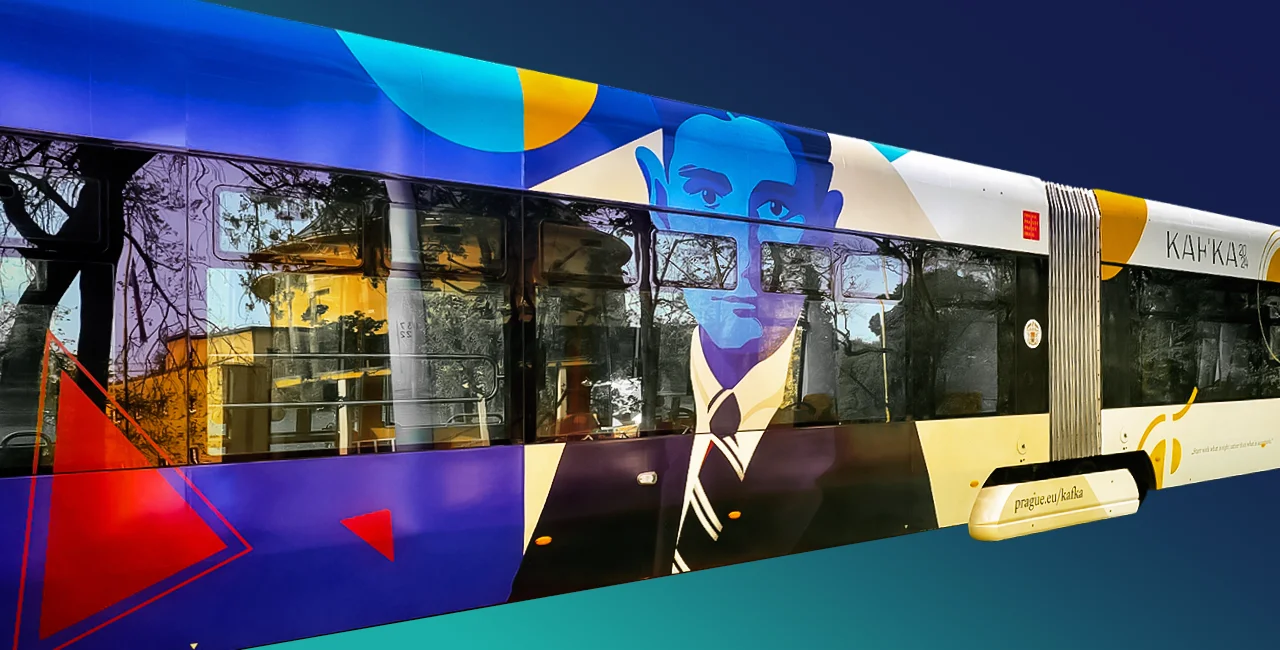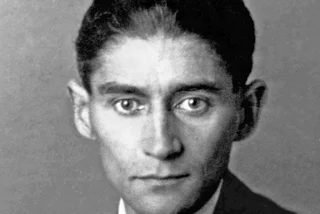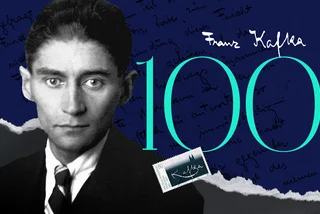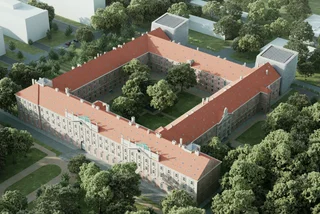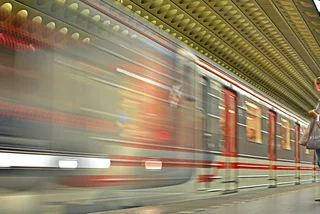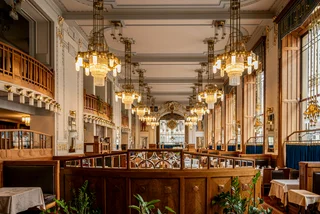The City of Prague, in collaboration with Prague City Tourism and the capital’s Municipal Library, has kicked off a year-long celebration to commemorate the life and legacy of renowned Bohemian author Franz Kafka on the centenary of his death. One of the project’s main highlights is a specially decorated tram – launched today – that will pass through the streets of Prague.
"This year, we will bring Kafka's narrative to life in the city. Thanks to the amazing cultural projects that have already begun or will soon, we will offer Kafka’s distinctive art to Prague’s residents and visitors,” said Prague Deputy MayorJiří Pospíšil in a press release.
A tram brimming with history
The commemorative tram, which will run on various routes, displays illustrations of Kafka with philosophical quotes – both in English and Czech – scattered along its exterior. “A book must be the axe for the frozen sea within us,” reads along one side of the tram. “Do not waste time looking for an obstacle – maybe there is none,” reads another. "He who sees does not need to ask," is also displayed in Czech. The inside of the tram comes with more quotes and information about Kafka's life.
Exhibitions and talks for all visitors
The German Adalbert Stiffer Society, in partnership with the Municipal Library, has also launched an English-language website entitled Festival – Kafka 2024 (found on kafka2024.de/en) that documents Kafka-related events in Prague this year. The Municipal Library will also hold various events this June to commemorate the author via lectures and discussions and a literary and art competition.
Prague.eu also has a special web section devoted to the Metamorphosis author, which details aspects of Kafka’s life and all related events going on in Prague. Highlights, for example, include the KAFKAesque exhibition at the DOX Centre for Contemporary Art – already open – and the World of Franz Kafka display located in the basement of Prague City Hall.
František Cipro, chairman of the board of directors of Prague City Tourism, says, “Franz Kafka is inextricably linked to Prague and is often the reason for visiting the city. Thanks to research, we know that tourists from German-speaking countries primarily visit Kafka-related institutions, but American and – not least, domestic – are also interested in learning about the author.”
An illuminated water mill and a festival
The city has contributed CZK 1.2 million to the Kafka-remembrance project, including a unique collaboration with illustrator Magdalena Jetelová that will see the New Mill Water Tower (Novomlýn) in Prague 1 light up with engaging illustrations as part of the Franz Kafka-Elevation project.
The 29th edition of the Book World Festival (Svět Knihy), which will heavily feature works of the famed author, will take place on May 23-26 at the Exhibition Grounds in Prague’s Holešovice district.
The Ministry of Culture has also backed the celebration, supporting 14 projects worth CZK 1.4 million. These include productions, exhibitions, and publications in collaboration with various organizations, such as the Jewish Museum, Jewish Community, and Prague's literary houses.
The Goethe Institute will also run several Kafka-themed events from May to September, including “The Photo Album of the Kafka Family” exhibition, which opens to the public June 5. Divadlo na zábradlí will also show the Kafka has Left the Building performance cabaret on June 6.
Franz Kafka was born in Prague on July 3, 1883, to a Jewish family of merchant Hermann Kafka. Only six of his short stories, including The Metamorphosis, were published during his lifetime. Kafka had instructed his friend to destroy his writings after his death, but fortunately, the request was not fulfilled.
He was not well-known during his lifetime and was recognized only by a small group of people. Kafka died on June 3, 1924, after a long battle with tuberculosis in a sanatorium near Vienna. Most of his works were published posthumously.












 Reading time: 3 minutes
Reading time: 3 minutes 